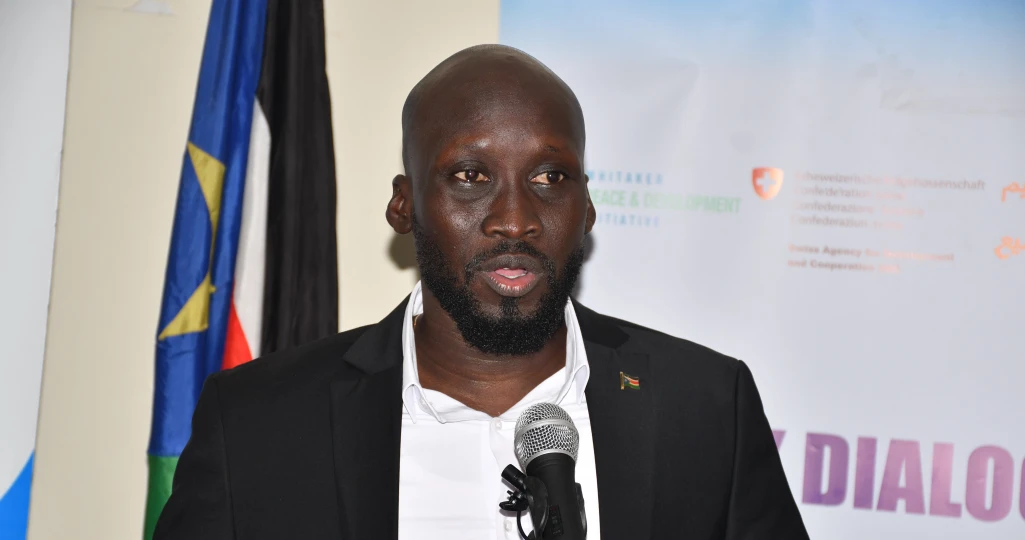
The president of the South Sudan National Youth Union has called on the young people to demand the immediate passing of the ‘Youth Development Policy’.
Speaking during a two-day dialogue on Youth Development Policy, Youth Enterprise Development Fund, and African Youth Charter in Juba on Tuesday, Gola Boyoi Gola said the youth should demand the passage for the common good of the young people.
“The youth development policy is a very importance document, not just for the youth of South Sudan but also for national youth union as an institution because at the regional level, up to now we are not legal and that’s why you guys are seeing there are lot of challenges,” said Gola.
The policy is meant to give the young people access to finances from the government of South Sudan and for the government to fully fund the national youth union.
Chapter IV of the 2018 revitalized peace agreement provides for the establishment of a Youth Enterprise Development Fund with the goal to bring more youth into economic growth and development.
Gola said young people in South Sudan lack their supposed support from the government because the document is not enacted into law hence placing the youth office in a vulnerable situation where they are not able to help youth.
“Our office has become ceremonial body that the young people of South Sudan are not directly beneficiaries that’s all because we are lacking youth development policy and we are lacking support and fund that’s supposed to support the young people of South Sudan,” Gola lamented.
“In that policy [Youth Development Policy], the government is obligated to fund the national youth union and all youth organizations in the country but without that policy, the government have no any obligation. We end up being beggars, we have to go and beg for what is ours.”
Gola who is only left with two months to leave the national youth office to another leadership to be elected in December said the young people should not only put the responsibility of advocating for the policy on the youth union but a role of all of Youth to advocate for their rights.
“I want to urge you; if can come up with the hashtag of #Where_is-the_South_Sudan_National_Youth_Policy on all social media outlets. I’m sure within 72 hours, you are going to hear good news because that policy is not only going to benefit the national Youth Union but all youth of South Sudan,” he continued.
Responding to the youth question on policy passage, the Undersecretary of the National Ministry of Youth and Sports, Peter Baptist Abakar, said the document was likely to be table next week in the council of ministers.
“With the Youth Policy, we have finished with the technical cluster and ministerial cluster under mama Rebecca […] next week, we are taking it to Martin Elia Lomuro to table it as an urgency. From there going to the parliament, they are going to discuss very specific things. This is just a procedure,” Baptist said.
The undersecretary dismissed the allegations that the Parliament had returned the document but said the policy was submitted to the assembly when the ministry was still ‘Ministry of Culture, Youth and Sport’ but when the ministry was divided into two, the august house had to ask the youth ministry to revise the document and remove anything that include culture.
Parliamentarian Bol Thong Nyon, a member of specialized committee on Youth and Sport in the transitional legislative assembly said they will ensure the house give the policy a priority when it reaches the parliament.
“This bill we are waiting for it in the parliament but it’s not yet there. We have been asking for it but it’s not easy because bills are many […] We’re have a discussion with the minister of Youth and Sport to coordinate and make sure this bill reaches the parliament. It’s just in the process and it may come any time soon and if it come, we will make sure the parliament pass it,” said Thong.
The drafting of the Youth Development Policy was started in 2006 during the Comprehensive Peace Agreement (CPA)’s government by the first national minister of culture, youth and sport, late John Luk. 17 years later, the policy is yet to be enacted in order to give young people access to government finances.